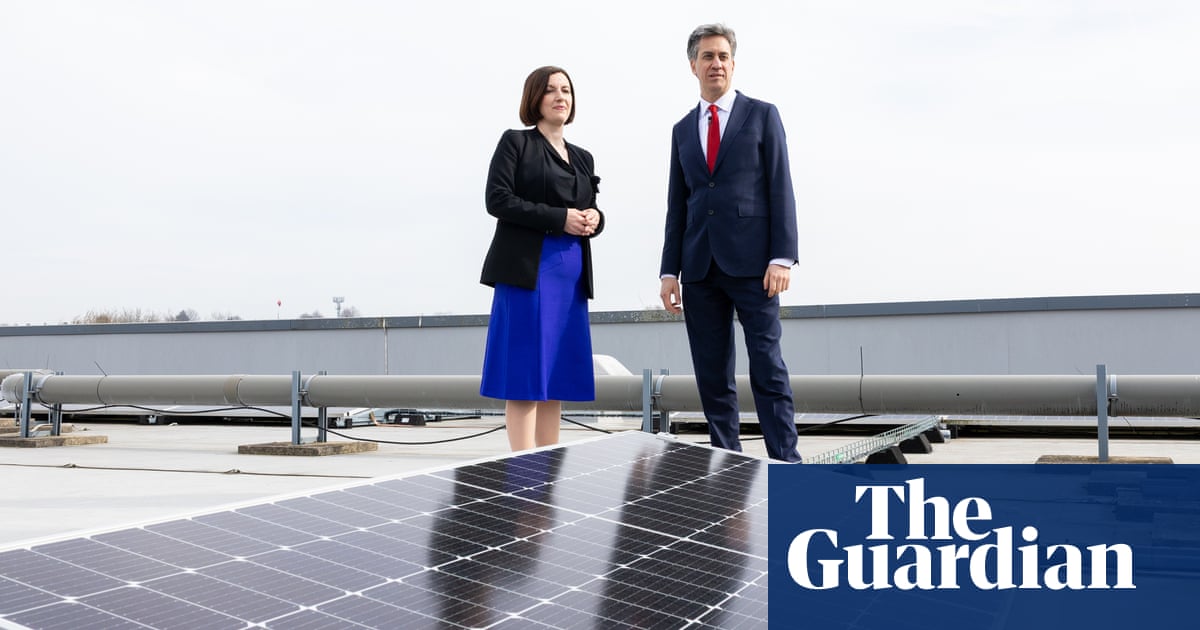Ed Miliband will ban the UK’s national energy company from investing in projects that use solar panels linked to Chinese slave labour after bowing to pressure from Labour and Conservative MPs.
The energy secretary has dropped his previous resistance to rewriting thebill establishing Great British Energyand will now introduce an amendment that forces the company to make sure there is no slavery or human trafficking in its supply chain.
The decision, which wasfirst reported by the Times, was welcomed by MPs and campaigners seeking to highlight Chinese human rights abuses, but could make Britain’s net zero push more expensive. It comes a month after the government whipped Labour MPs to vote down a similar amendment from the Lords.
A government source said: “We are committed to ensuring Great BritishEnergyis a sector leader in this area, developing resilient, homegrown supply chains free from forced labour, and will bring forward proposals shortly on this.”
Fatih Birol, the head of the International Energy Agency,told the BBChe welcomed the move, saying that green technology “should really be produced in a socially and environmentally acceptable way”.
Sarah Champion, one of the MPs who has pushed ministers to make the change, said: “This is the only way to make sure our transition to net zero is not carried through on the backs of slavery and exploitation.”
Andrew Bowie, the shadow energy secretary, called the move a “humiliating U-turn from Ed Miliband”.
China dominates the market for green technology and the scale of its development has helped push prices of solar panels down 90% in the last decade. Between 35% and 40% of polysilicon, the key raw material for solar panels, is produced in Xinjiang where the Muslim Uyghur population has been subject to arbitrarydetentionandforced labour.
MPs and peers have campaigned for months for changes to the Great British Energy bill to make clear the company, which has been promised more than £8bn to spend, will not invest in projects where there is credible evidence of modern slavery in their supply chains.
Last month, the governmentdefeated an amendmentfrom the cross-bench peer David Alton, to achieve that. Government officials have long said they want to tackle forced labour in energy supply chains but have argued the Great British Energy bill is the wrong vehicle because it required a cross-government effort across multiple sectors of the economy.
However, a government source said on Wednesday that conversations with MPs and peers had persuaded ministers that amending the bill would in fact be the most effective way to achieve their ambitions.
They also say Britain will be able to buy solar panels from other parts of the world, including from a small but growing number of British suppliers.
The issue is particularly sensitive for the government as it is also pursuing a rapprochement with Beijing in a bid to attract billions of pounds’ worth of infrastructure investment.
Milibandvisited China last monthto talk about energy investment, where sources say he brought up the issue of slave labour in solar supply chains.
